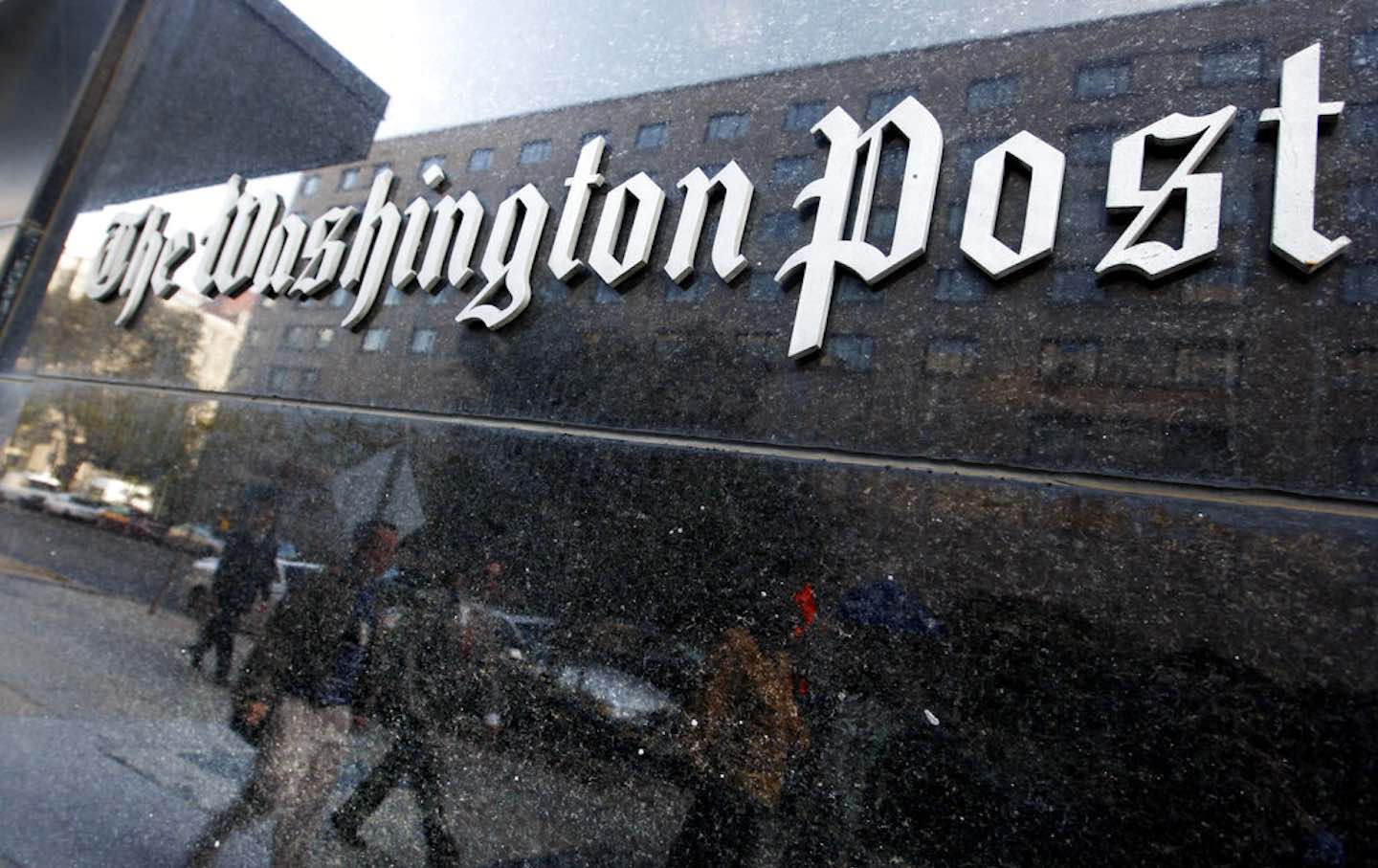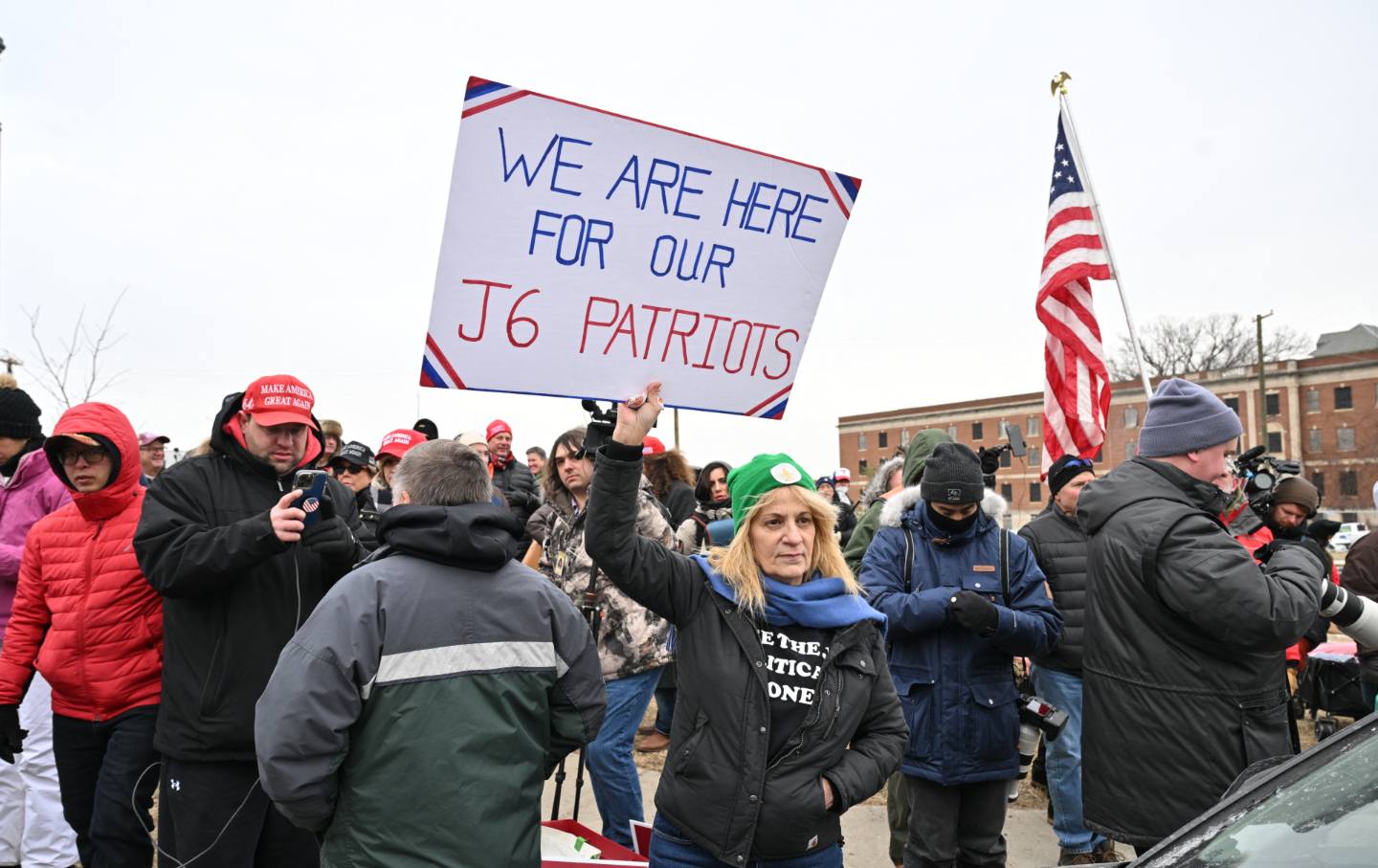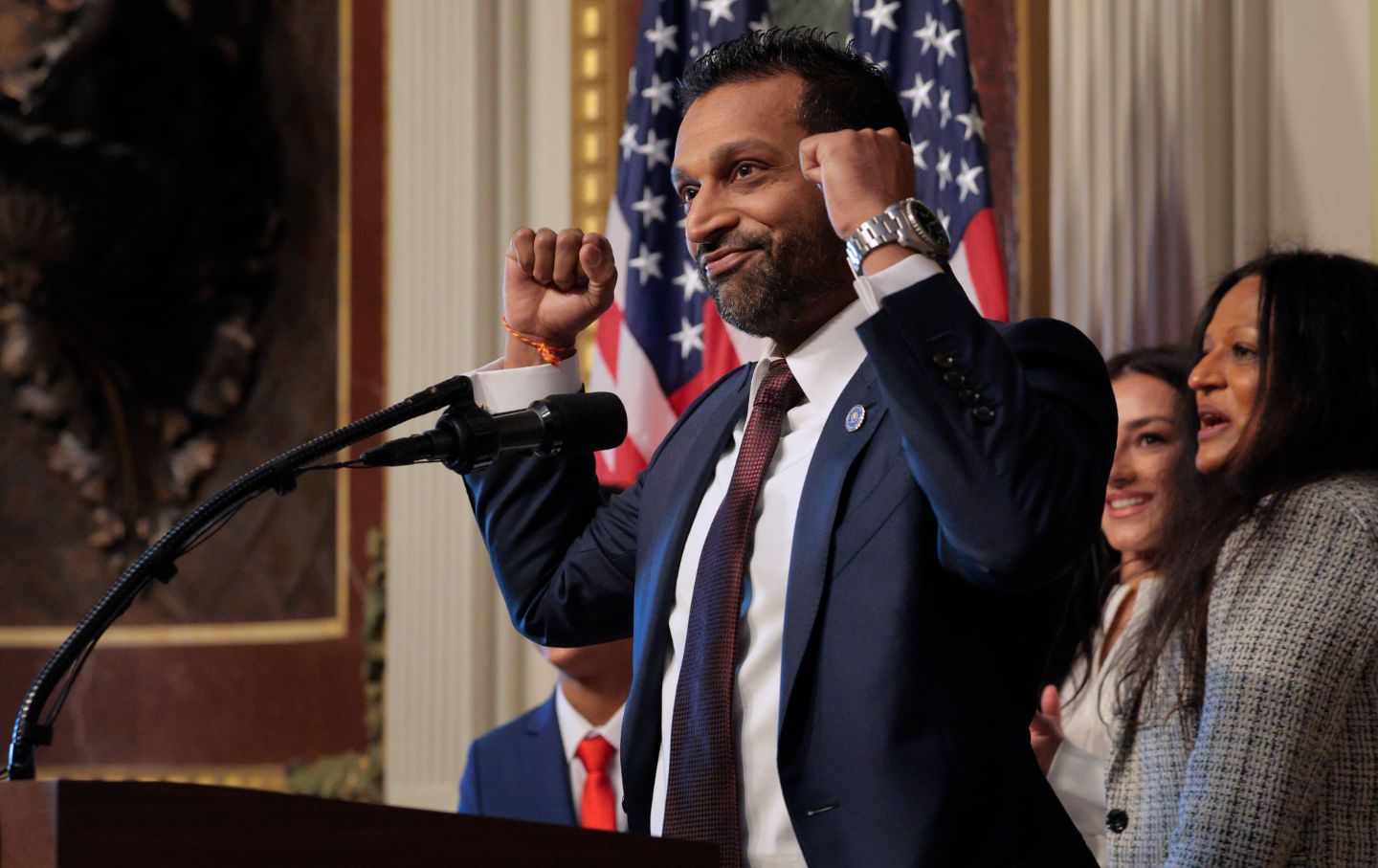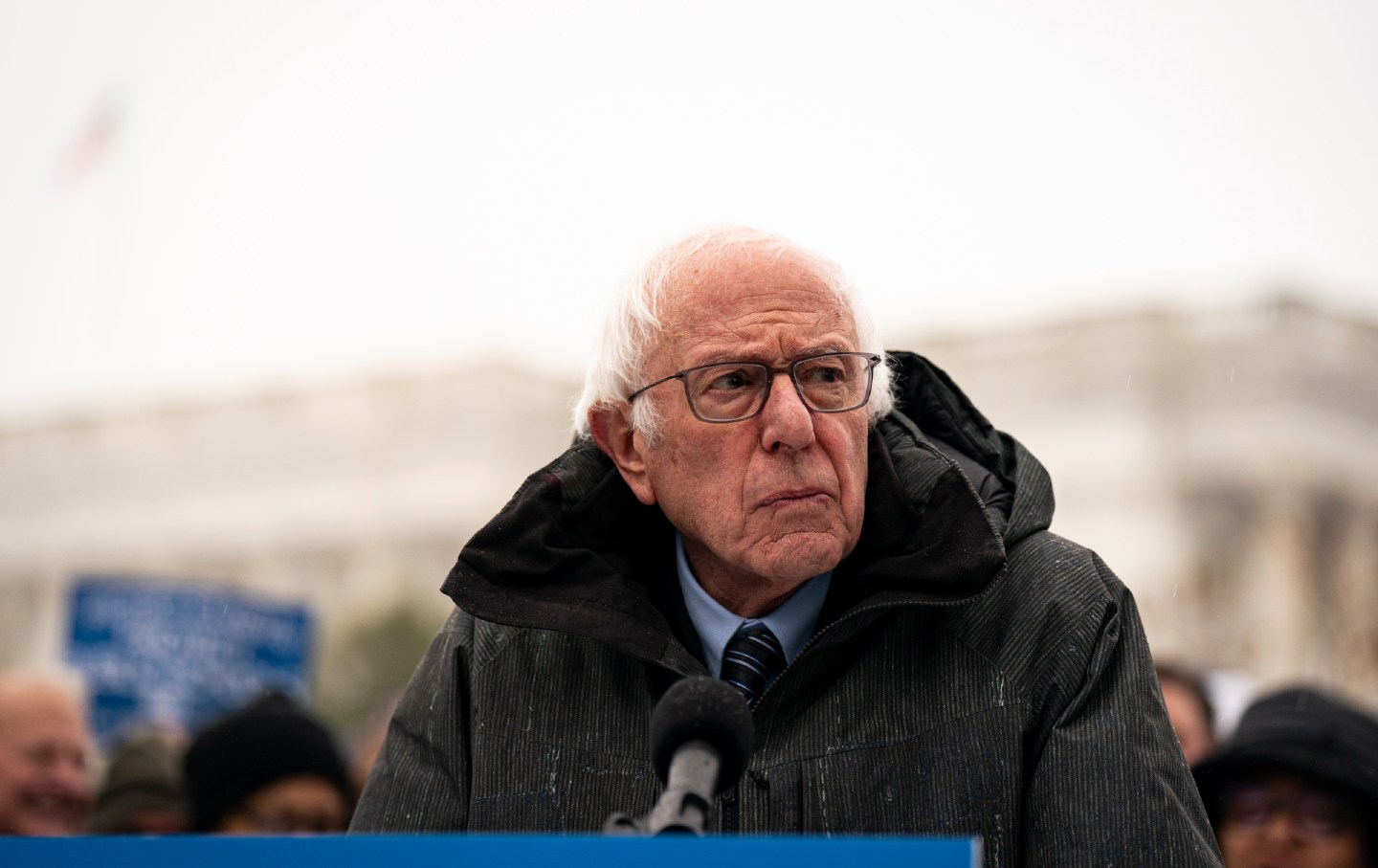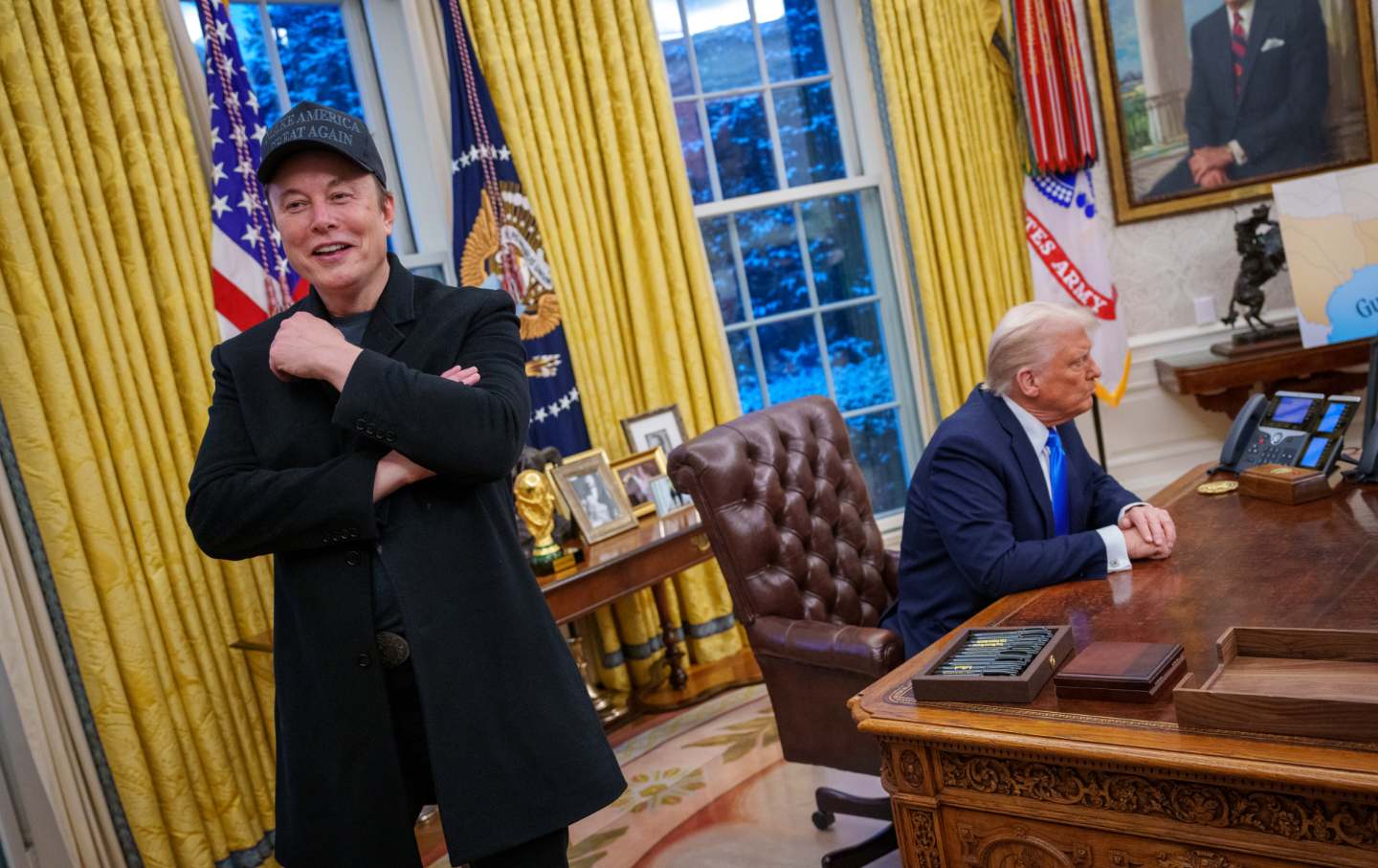Michael Cohen’s Testimony Reveals the Sad Life of a Trump Toady
Trump’s former lawyer described in court how the former president demands total sycophancy from his underlings.
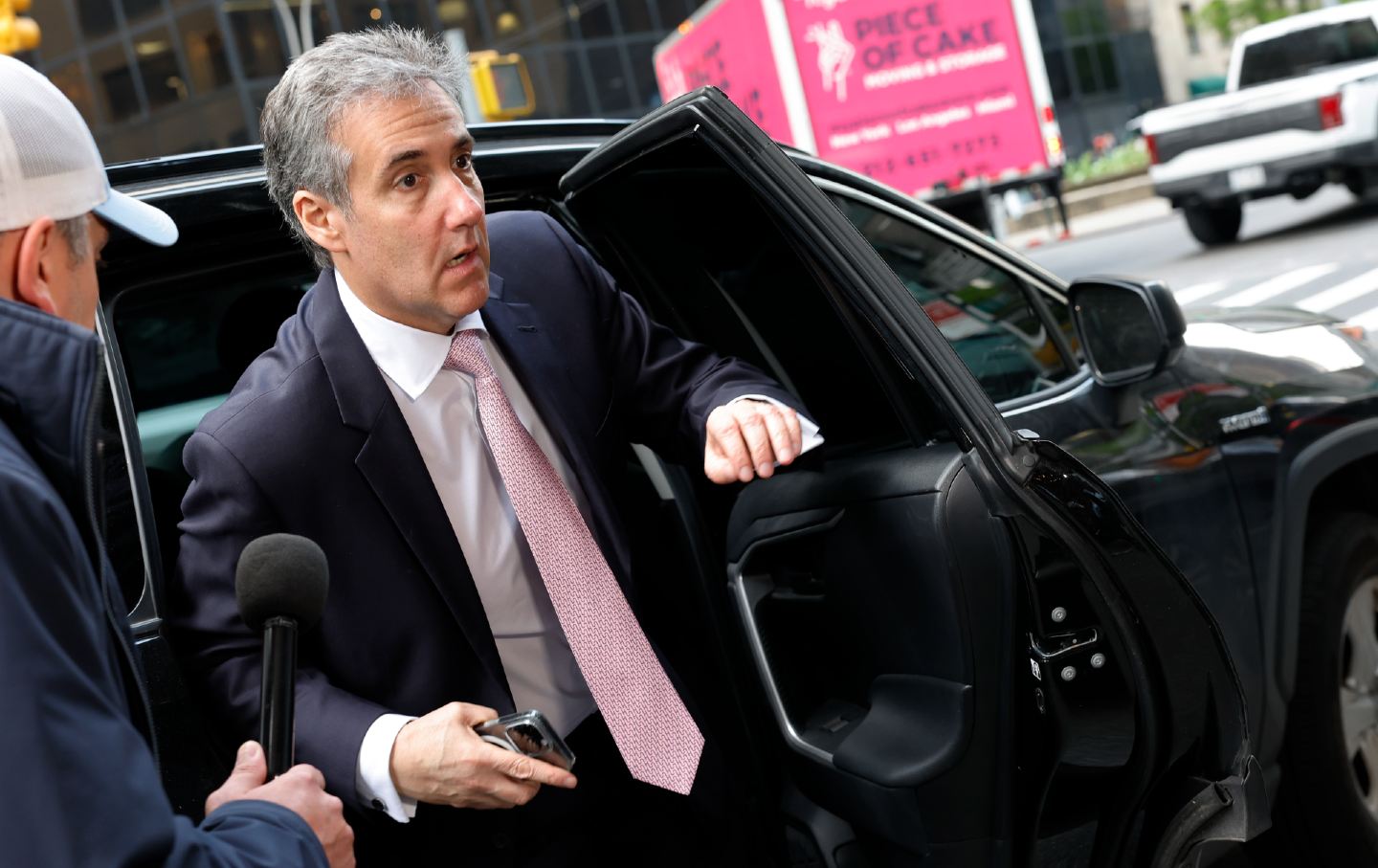
Michael Cohen, former president Donald Trump’s former attorney, arrives at his home after leaving Manhattan Criminal Court on May 13, 2024, in New York City.
(Michael M. Santiago / Getty Images)The third week of Donald Trump’s criminal trial in Manhattan kicked off with the testimony of a familiar Trumpworld figure: former Trump attorney and fixer Michael Cohen. Cohen’s turn on the stand has been hotly anticipated since the trial got underway last month, since he’s able to directly confirm key details in the prosecution’s case, chiefly concerning the logistics of the payoff to former porn star Stormy Daniels in order to suppress her story of an alleged sexual encounter with Trump in 2006.
Cohen, now a veteran witness in Trump-related congressional inquiries and legal proceedings, hit his mark without much of the drama that attended Daniels’s own testimony last week. Indeed, his testimony was likely more damning by virtue of its mundanity: He recounted a series of negotiations with National Enquirer publisher David Pecker over various catch-and-kill expeditions. Cohen’s aim was to tamp down stories about Trump’s salacious and seamy past that could have done serious damage during the late stages of his 2016 presidential run.
When they were arranging a $150,000 payment for the “life rights” to the writings of former Playboy playmate Karen McDougal, with whom the GOP nominee allegedly carried on a nine-months-long affair, Trump and Cohen used a mob-style argot familiar to both them. A transcript of a 2016 call Cohen that surreptitiously recorded, with the professed aim of sharing it with Pecker to assure that he’d be reimbursed for the Enquirer’s fee to McDougal, has Cohen saying, “I need to open up a company for the transfer of all that info regarding our friend, David, you know, so that—I’m going to do that right away.” When they get to the discussion of how Cohen will arrange Pecker’s reimbursement with (since convicted) Trump Organization CFO Allen Weisselberg, Trump tells Cohen to make the payment in cash—because, as Cohen went on to explain, “a check would make it appear to be a proper transaction.”
The same narrative through line played out in Cohen’s account of the Daniels payment—with the added urgency that this catch-and-kill operation took shape in the wake of the release of the Access Hollywood tape, which recorded Trump bragging about his efforts to seduce while his wife was pregnant with their son, Barron, as well as his infamous declaration that, as a celebrity, all one had to do to engage the sexual interest of women was to “grab them by the pussy.” In this context, Cohen testified, the publication of Daniels’s story would have been “catastrophic” and “horrible for the campaign.” When it came time to broker the payoff with Daniels’s then-attorney and an official at the Enquirer’s parent company, American Media Inc., Cohen opened up a three-way text thread in which he described the backsheesh payment as “a business opportunity”—which was to say, yet another catch-and-kill arrangement.
Cohen also testified that Trump, in ordering him to take care of the Daniels payoff, voiced concern over its effect on his campaign—a crucial point in the prosecution’s case that the business fraud involved in these payments (which otherwise is classed as a misdemeanor offense) served to conceal greater election-related crimes, and thus rise to the level of a felony. Trump’s defense team has maintained that the Daniels deal was rooted in exclusive concern for how Daniels’s story would affect his family—which is not a material concern for New York’s campaign finance law. “This is a disaster—a total disaster,” Trump fumed, per Cohen’s testimony. “Women will hate me. Guys, they think it’s cool, but this is gonna be a disaster for the campaign.”
Since Cohen’s account goes to the heart of the prosecution’s case, Trump’s defense team will almost certainly harp on a well-worn MAGA refrain: that since Cohen has been convicted for providing false statements to banks, along with illegal campaign contributions and tax evasion, he has zero credibility as a witness in a court of law. That was the main tactic Republicans used in 2019 to try to discredit Cohen when he testified before the House Oversight Committee about many of the same seamy dealings on behalf of Trump and his 2016 campaign. And there’s no doubt that, as Cohen again testified in Manhattan, he was regularly called on to lie, browbeat, and develop extralegal backchannels for Trump. But as he also testified, Cohen only launched his corrupt bargains with the single-minded view of pleasing Trump; he called his early experience at the Trump Organization “fantastic” and “an amazing experience in many, many ways,” while repeatedly stressing that his sole objective on the job was to keep his boss happy. The tremendous lengths that Cohen went to on Trump’s behalf—including tapping into his own home-equity line of credit to fund the Daniels payoff—demonstrate the total sycophancy Trump demands from his underlings.
At the end of his Monday testimony, Cohen confirmed that, not only had Trump been briefed in real time about every facet of the payoff negotiations, but the newly elected president also sat in on the meeting in which Weisselberg had approved the $420,000 repayment plan—another central case for the prosecution’s case. (It may be difficult to prevail on Weisselberg for corroborating testimony of his own, however, since he’s now incarcerated at Riker’s Island.)
While we can expect Trump’s lawyers to be energetic in their efforts to impugn Cohen’s credibility, their talking points have become threadbare. Since Cohen’s congressional testimony five years ago, a raft of former Trump allies have defected from the MAGA faith—from former Mark Meadows aide Cassidy Hutchison to Trump election attorney Jenna Ellis to Homeland Security official Miles Taylor. That’s to say nothing, of course, of the many senior Trump insiders who have—however provisionally and haltingly—assailed his basic character and competence, from former national security adviser John Bolton and erstwhile attorney general William Barr to former defense secretary Mark Esper. Since nothing about Trump’s petty and vengeful temperament ever changes, the MAGA line on all these figures is basically the same indictment that was trotted out against Cohen: that they’re corrupted, morally compromised liars in cahoots with the Democratic Party, the fake news media, and/or the “deep state.”
But simple math militates against such rote show-trial-style denunciations; any robust conspiracy that enlists the Hutchisons and Taylors alongside the Espers and Barrs is at once too unfocused to be truly effective and too implausibly capacious to shield its maniacal MAGA-baiting agenda from public view. The same goes, of course, for the refrains of “lawfare” and “election interference” that light up Trump’s Truth Social account and his rally performances. In reality, the court actions against the former president all have the same petty Trumpian petulance as their root cause. (Indeed, one revealing disclosure in Cohen’s testimony was that, after Trump had won the 2016 election and disbursed annual holiday bonuses to his inner circle of employees, Cohen was shocked to find that his payment was two-thirds lower than the year before; Trump simply can’t help stiffing the help, it seems, even when said help engages in criminal conspiracies to save his hide.)
Speaking of those court actions, the other difficulty with the defense strategy of discrediting Cohen as a compulsive and untrustworthy liar is that New York juries have recently come to the same conclusion about Trump. Twice over now, E. Jean Carroll has won hefty financial judgments against the former president stemming from his repeated public lies about the sexual assault he committed against her. The civil trial against the Trump Organization likewise found it to be carrying out business fraud on a routine yet colossal scale. It’s almost as if Trump’s entire public career has been devoted to perpetrating the biggest lies he can imagine.
That message may land with the jury in the Stormy Daniels case, but thanks in part to the labors of Michael Cohen in October 2016, the Republican Party is deeply immune to it. For proof, one need look no further than Trump’s courtroom cheering section: a new MAGA-world recruit there was Ohio GOP Senator J.D. Vance, who rose to prominence on the strength of his hicksploitation memoir Hillbilly Elegy, which had been widely and mistakenly taken to be a definitive breakdown of the malaise afflicting white working-class America. Vance eagerly took to the role of heartland interlocutor back then, even as he was an ardent Never Trumper in his stated political affiliations. Over time, Vance saw the MAGA light and, thanks to tens of millions in campaign dosh funneled to him by Silicon Valley MAGA prophet Peter Thiel, won election to the Senate as a Trump sycophant in 2022. He’s now reportedly on Trump’s short list of potential VP candidates—a position he no doubt intended to help secure by posting derisive tweets about the trial as he sat alongside his Alabama colleague Tommy Tuberville, who came to his role as Trump lickspittle via the notionally more honest route of football demagogy.
In many ways, the trajectory of Vance’s career is a photographic negative of Cohen’s—starting out as a critic of Trump’s bigotry and excesses, Vance soon discovered that the shortest path to power in today’s GOP was to bow down before its MAGA patriarch and croak his praises ad infinitum. The Republican Party, in other words, now functions as a machine exclusively given over to the mass production of fawning Trump fixers—and that’s a problem that a slew of adverse courtroom verdicts is not about to change.
Support independent journalism that exposes oligarchs and profiteers
Donald Trump’s cruel and chaotic second term is just getting started. In his first month back in office, Trump and his lackey Elon Musk (or is it the other way around?) have proven that nothing is safe from sacrifice at the altar of unchecked power and riches.
Only robust independent journalism can cut through the noise and offer clear-eyed reporting and analysis based on principle and conscience. That’s what The Nation has done for 160 years and that’s what we’re doing now.
Our independent journalism doesn’t allow injustice to go unnoticed or unchallenged—nor will we abandon hope for a better world. Our writers, editors, and fact-checkers are working relentlessly to keep you informed and empowered when so much of the media fails to do so out of credulity, fear, or fealty.
The Nation has seen unprecedented times before. We draw strength and guidance from our history of principled progressive journalism in times of crisis, and we are committed to continuing this legacy today.
We’re aiming to raise $25,000 during our Spring Fundraising Campaign to ensure that we have the resources to expose the oligarchs and profiteers attempting to loot our republic. Stand for bold independent journalism and donate to support The Nation today.
Onward,
Katrina vanden Heuvel
Editorial Director and Publisher, The Nation

